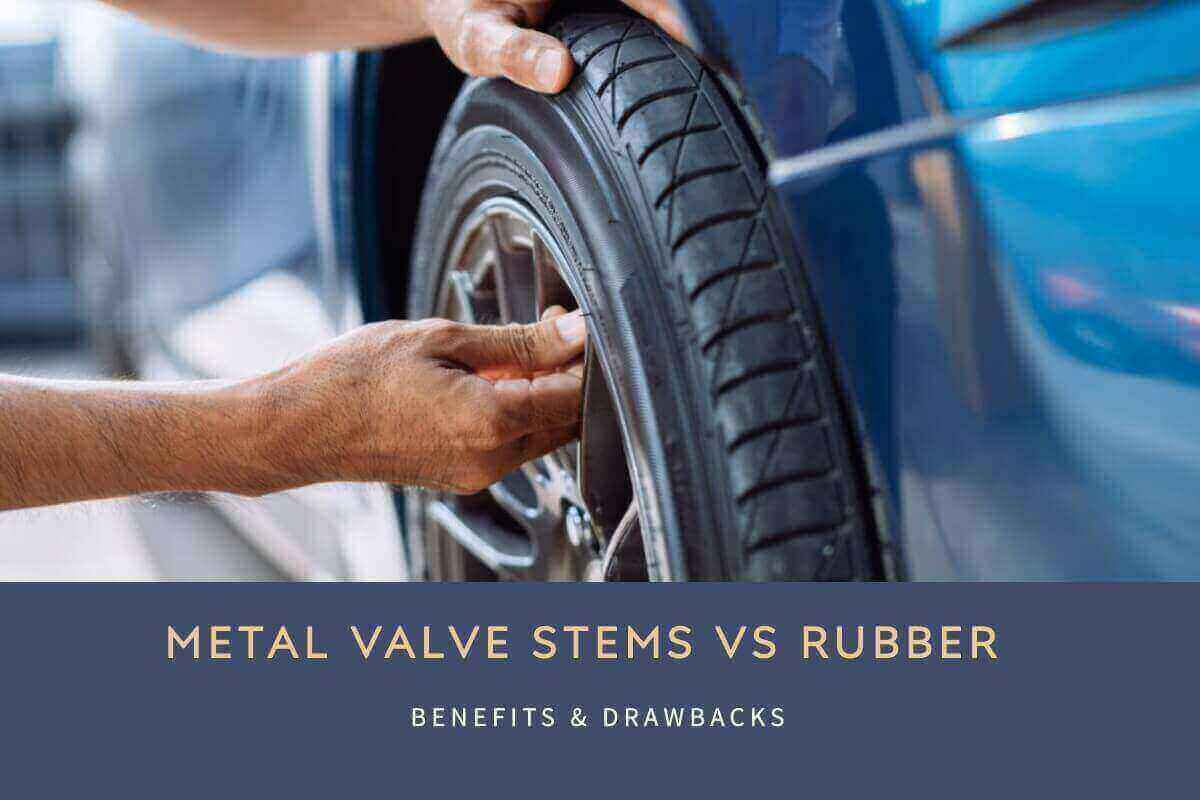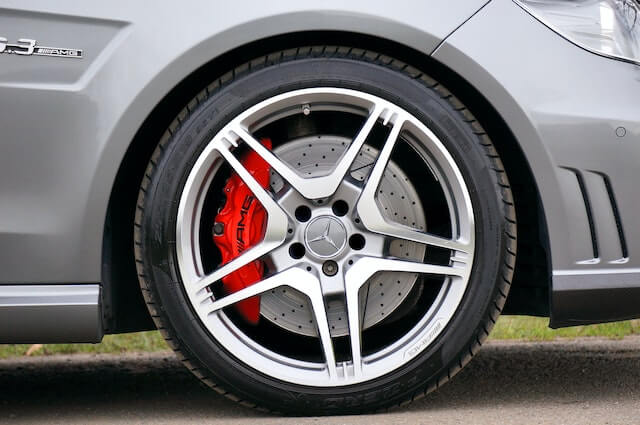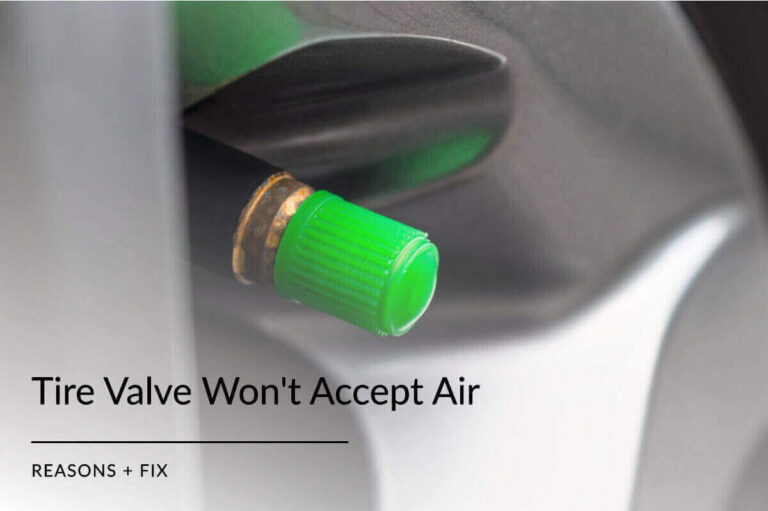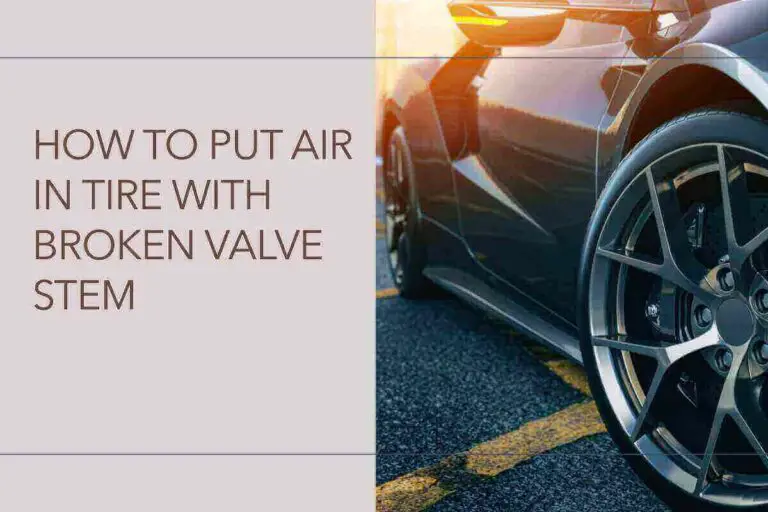Valve stems are an integral part of a tire, allowing it to hold air and stay inflated. When considering the type of valve stem for your vehicle, two of the most popular materials are metal and rubber. Both have their own benefits and drawbacks that should be explored before making a decision.
In this article, we will compare metal valve stems versus rubber valve stems, taking into consideration factors such as performance, longevity, cost, and convenience.
Metal Valve Stems Vs Rubber
When it comes to tires, there are a lot of factors to consider. Choosing the right tires for your vehicle is no easy task, from the size and type of tire to the materials used to make them. You have to decide whether you want metal valve stems or rubber ones. While both types of valve stems have their benefits, it can be a difficult choice if you don’t know much about them.
Valve stems are an important part of any tire, but many people need to learn the difference between metal and rubber valve stems. Have you ever needed clarification when considering the right valve stem for your vehicle? We will explore the differences between the metal valve stems Vs rubber valve stems so that you can make an informed decision on which is best for you and your vehicle.
CKAuto VS43/TR43E Tubeless Metal Valve Stems
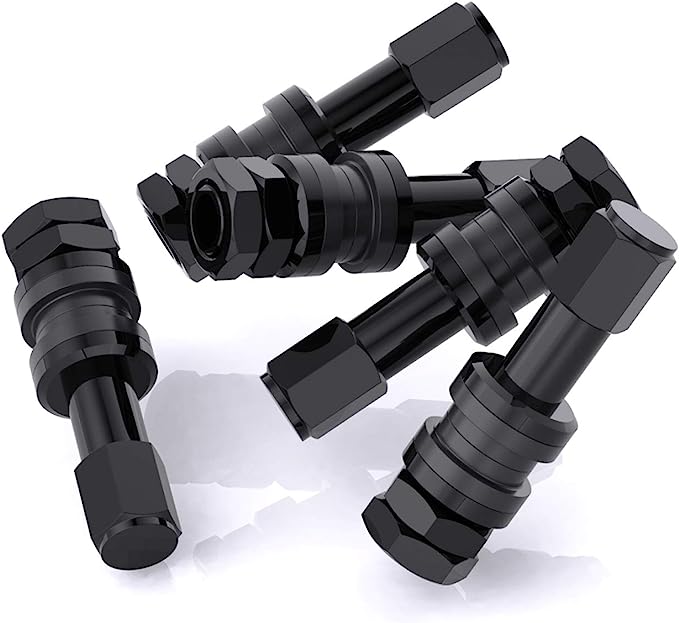
Specifications:
A high quality metal tubeless TR43E tire valve stem with its 43mm medium profile design. Constructed with the heavy duty brass with the EPDM rubber gasket and it is 100% leaked tested from the US standard. This metal valve stem is cold, heat, and ozone resistant. The capacity of the valve stem holds up to 65psi cold pressure.
1. Durability & Performance
Cars and other vehicles have been relying on the same components for decades. One of the most important parts is the valve stem, which controls air pressure in the tires and can be crucial to maintaining performance and safety. There are two distinct types of valve stems: metal and rubber. But how do they compare when it comes to durability and performance?
Metal valve stems are typically made of brass or aluminum, making them durable enough to withstand extreme temperatures, road debris, corrosion, vibrations, and impacts. Additionally, their sturdy construction provides good sealing capabilities with minimal leakage risk when paired with well-made tire valves. Metal valve stems also tend to last longer than rubber ones due to their increased durability.
2. Cost Comparison
Regarding valves, metal and rubber are the two most popular materials used in manufacturing today. Metal valve stems are more expensive upfront when compared to rubber valve stems, but they offer a longer lifespan and durability that makes them well worth the extra investment.
The components of metal valves last up to five times longer than those made from rubber, which means consumers can typically get away with replacing them less often. It adds up over time as fewer replacements need to be purchased, making metal valves a much more economical choice in the long run.
On the other hand, rubber valve stems are available at a fraction of the cost of metal ones and may require fewer labor hours during installation or repairs due to their lighter weight.
3. Maintenance Considerations
When it comes to metal valve stems vs rubber, there are a few maintenance considerations that should be taken into account. Metal valve stems seem like the more durable option at first glance. However, depending on their placement and usage, they can be susceptible to corrosion and impact damage. To avoid potential rust issues over time, you may need to exercise regular inspection of your metal valve stem and apply protective coatings as necessary.
Rubber valve stems are typically much easier to maintain than their metal counterparts; however, they can become dry-rotted or cracked with age or exposure to extreme temperatures and UV rays. Therefore, it is important to regularly inspect the rubber surface for any signs of cracking or splitting. You should also check for proper inflation to ensure optimal valve performance.
Metal Valve Stems
Metal valve stems provide an easy-to-use and cost-effective solution for various vehicle and equipment needs. These metal components, composed of brass, steel, or aluminum, are strong and durable compared to rubber valves.
They have the ability to resist heat better than rubber, making them ideal for high-temperature applications such as air compressors or anything that requires a significant amount of pressure. In addition, they also provide greater protection against water intrusion and ozone degradation.
Best Metal Valve
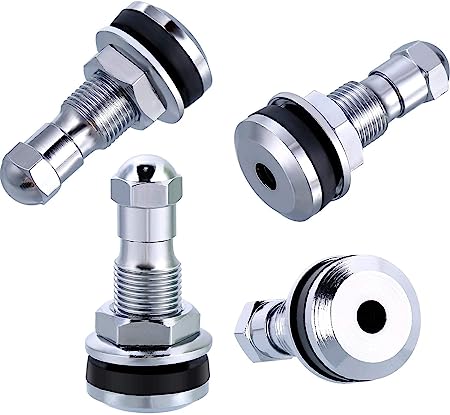
Veteran Tire and Rubber TR-416-S 1″ Outer Mount Metal Valve Stem
Features:
The pressure rating of this valve stem is 130 PSI and even goes well with the motorcycle rim. Mainly consist of metal but it includes rubber and nickel in the end with its mounted shape.
Advantages of Metal Valve Stems
Metal valve stems offer a number of advantages over traditional rubber ones. Below are some advantages of metal valve stems:
- They are much stronger than rubber and can withstand more pressure, meaning they are less likely to blow out or leak under heavy use.
- Metal valve stems also have better-sealing capabilities than rubber, resulting in a tighter seal around the wheel rim and less air leakage.
- Furthermore, metal valve stems can be adjusted to different inflation pressure levels more easily than rubber versions, making them more versatile for different applications.
- The major advantage of metal valve stems is that they are much easier to replace in the event of a puncture or other damage.
- Unlike rubber valves which must be cut off when replacing them, metal valves can be unscrewed from the wheel rim and replaced with a new one without any cutting required.
Disadvantages of Metal Valve Stems
Metal valve stems have been a popular choice in the automotive industry for decades, and although they offer several advantages, they also come with some significant drawbacks.
Below are some of the primary disadvantages of metal valve stems:
- Metal valve stems can be prone to corrosion due to exposure to water and other elements.
- It can lead to reduced performance or even failure if addressed slowly.
- Metal is less flexible than rubber, so it may not provide as tight a seal around the tire.
- It could allow air or moisture into the tire over time which could weaken its structure and cause premature wear or breakdowns.
Rubber Valve Stems
Rubber valve stems may not be as popular as their metal counterparts, but they are still essential for some applications. A rubber valve stem is a component of an inner tube or tire that allows air to pass in and out of the tire. It consists of a cylindrical base that fits into the rim and is sealed off with a rubber cap at the top. It can be found on car tires, bicycles, and even wheelchairs.
They have become increasingly popular in the automotive industry, and for a good reason. These durable components are designed to fit into a tire’s inner tube and hold air pressure. They provide an effective seal that protects against air loss and offers various benefits over traditional metal valve stems.
Best Rubber Valve
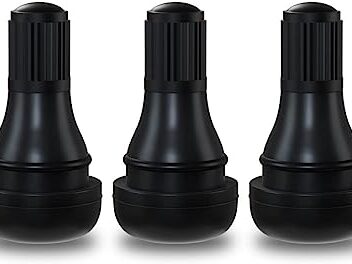
CKAuto TR412 Rubber Snap-in Short Tire Valve Stem
Features:
CKAuto brand Premium TR412 Rubber Snap-in Valve Stem with U.S.standard and high quality is guaranteed, providing safe tire system and safe driving. Constructed of brass and ozone resistant, EPDM rubber 100 percent leakage tested.
Benefits of Rubber Valve Stems
When compared to their metal counterparts, rubber valve stems offer several advantages.
- For starters, they are much lighter in weight and less likely to cause punctures than their metallic equivalents.
- The softer material makes them more resistant to vibration and shock caused by bumps or road irregularities.
- Its increased durability can lead to fewer instances of flat tires due to damaged valves.
- Moreover, rubber valves require less maintenance than metal ones – no need for regular tightening or lubrication.
- Because of their lightweight nature, rubber valve stems are often preferred for racing applications where every ounce counts.
Drawbacks of Rubber Valve Stems
Rubber valve stems are an essential and often overlooked piece of automotive maintenance. But they have some disadvantages, which are given below:
- One drawback of rubber valve stems is that they are more prone to damage than metal valves.
- Rubber is softer than metal and can easily become punctured, cracked, or otherwise damaged by road debris or wear and tear over time.
- It makes it necessary to check them periodically for any signs of damage that could lead to a potential leak.
- Rubber valve stems may not be as durable or reliable as metal valve stems and can be more difficult to use when it comes time for a tire rotation or repair.
- In some cases, the rubber may even break off entirely, requiring you to replace the entire stem before driving again.
How do I choose a valve stem? Best metal valve stems
Choosing the best metal valve stems for your car or truck can be daunting. With many factors to consider when choosing in Metal Valve Stems Vs Rubber which are given below:
- Knowing which type of valve stem will provide the best performance and longevity for your vehicle is important.
- When comparing metal valve stems versus rubber valve stems, it is important to understand the strengths and weaknesses of each option in order to choose the best one for you.
- Metal valve stems are generally more durable than their rubber counterparts, making them ideal for vehicles that operate in extreme environments, such as off-road vehicles or cars that often drive through mud or water.
- On top of being strong and reliable, metal valves also boast improved air retention due to their design which creates an airtight seal with less chance of leaks.
- On the other hand, rubber valves offer flexibility when dealing with tight spaces and are much easier to install due to their lightweight construction.
Are Metal Valve Stems Better?
This is a question many car owners ask when it comes to maintaining their vehicles. Metal valve stems are becoming increasingly popular due to their durability and longevity, but they also come with certain drawbacks. Knowing the pros and cons of each type of valve stem can help you decide which is right for your vehicle.
Metal valve stems are more durable than rubber ones, as they are less likely to suffer from wear and tear due to temperature fluctuations. They also provide airtightness, ensuring no air escapes while inflating tires or checking tire pressure. In addition, metal valve stems have higher tensile strength than rubber ones, allowing them to last longer in challenging conditions like off-roading or racing.
Conclusion – Metal Valve Stems Vs. Rubber
The question of metal valve stems versus rubber is common for car owners. In the end, the decision comes down to personal preference and budget. The benefits of metal valve stems include strength and durability, with a longer lifespan than rubber valve stems. On the other hand, rubber has its cost and ease of installation advantages. Ultimately, it’s up to each car owner to decide which type is best for them based on their budget, needs, and preferences for their vehicle.
When deciding between metal or rubber valve stems, consider all factors, including cost, durability, and longevity. Quality should also be taken into account when choosing your parts; both types are available at varying levels of quality that could affect performance over time.
FAQs
How Long Do Metal Valve Stems Last?
Metal valve stems can last up to 10 years or more, depending on the quality of the stem and how well it is maintained. Regular inspection and maintenance can extend its lifespan significantly. Additionally, regular tire rotations will help ensure even wear and tear on the valve stem.
Is It OK To Use Metal Valve Stem Caps?
Yes, metal valve stem caps are perfectly acceptable to use. They are more durable than plastic and offer better protection against dirt and debris. Additionally, they can add a nice aesthetic touch to your vehicle.
Are Metal Tyre Caps Any Good?
Absolutely! Metal tyre caps are great for protecting your tyres from dirt and debris. Not only are they durable and long-lasting, but they also provide an extra layer of security to prevent theft. Plus, they offer a stylish look that can enhance the overall appearance of your vehicle.
How Much Pressure Can A Rubber Valve Stem Hold?
Rubber valve stems can typically hold up to 65 psi of pressure. They are made from a durable, reinforced rubber material that can withstand high pressures and temperatures. Many modern rubber valve stems are designed with a reinforced steel core for even greater strength and durability.
Do Valves Get Tighter Or Looser?
Valves typically get tighter over time as the valve stem and seat wear. It is because the valve gets narrower and does not seal well, leading to higher pressure in the system. To prevent this from happening, valve maintenance should be done regularly to ensure proper operation.

